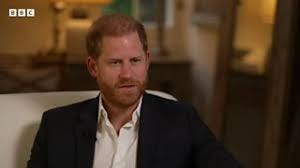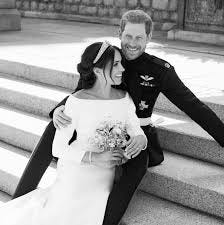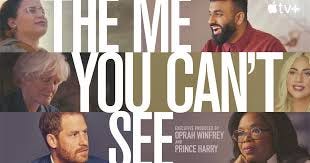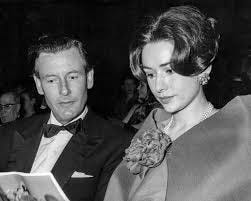Prince Harry Deserves Compassion Not Condemnation.
So much of the commentary on Harry sees him as a misguided fool - but that is badly missing the point.
I was putting the finishing touches to this week’s Substack when I felt compelled to write about Prince Harry.
The Duke of Sussex lost his final appeal to maintain his right to taxpayer funded security when he is in the UK. He then gave an interview to the BBC claiming to be the victim of “a good old-fashioned establishment stitch-up.”
I'm not going to go into the rights and wrongs of his case, other than to say, active members of the Royal Family have a deal with the government and the British people - You do public engagements and we provide a security detail.
That security is not cheap. Harry gave up being an active member of the Royal Family when he left the country with his wife, Meghan. Doing things strictly by the book, the outcome is no surprise. Harry’s point seems to be his father could have intervened. To those who say that could never happen, I would simply point out the memoirs of various senior politicians - with many having decided to bend the rules on hearing the displeasure of Kings and Queens in private. The fact Harry even suggests this should happen is a whole other Substack about the nature of entitlement.
Much of the British establishment has long-since dismissed Harry as a petulant and foolish man, using this security row as another proof point. The sub-text of their remarks seems to be: Here is a man who has been misled by his self-absorbed and starry-eyed wife into rupturing the most famous family in the world. They believe he shouldn’t have done it - and he deserves all he gets. There are two reasons why they have reached that conclusion:
Harry rocked the boat. Instead of sucking up his anger at his position in the Royal Family, he fought back - and when he didn’t get what he wanted, told all in his autobiography, “Spare”. Revelations in it include a physical fight with his brother, William - who he describes as his “arch-nemesis” - and his plea to his father not to marry Camilla. Any family finds it hard to see its dirty linen being washed in public - that’s even more the case when you are royalty, with your every move being analysed and dissected. Some critics saw Harry’s actions as a petulant betrayal - others asked if this was the way to go if he had any future hope of reconciliation. As the Queen put it so brilliantly just before she died, “Recollections may vary,” over Harry’s claims. She was pointing out that grown-ups accept that no matter how strongly they feel, there are always two sides to any story.
Harry took on the media. The Duke pushed his fight with British newspapers to the brink. Where other celebrities had settled early over the phone hacking scandal, he waited to the last second - forcing major concessions that are deeply embarrassing for newspapers. The coverage of Harry and Meghan in the British press often feels skewed because of their resentment of him.
I’m clear - Harry has made a lot of misjudgments, and I wish there was someone in his life who could take him to one side and say, “I get it mate - but this isn’t the way.” But for all his wrong-headed actions - Harry is deserving of our empathy and compassion. He is a perfect example of someone needing to be helped towards finding peace and reconciliation - when the tone of wider society is more a long the lines of, “What a fool”; and, “He has made his bed and so he should have to lie in it.”
Anyone seeking to understand Harry should watch, “The Me You Can’t See” on Apple TV+. It’s a raw, frank look at emotional and mental wellbeing - with Harry, Oprah Winfrey and some very brave, less well known people, sharing their struggles.
Early in the first episode, Harry quotes someone saying:
“Pain that is not transformed gets transmitted.”
He explains that people who are hurt from their upbringing or what they have been exposed to, find that it comes out in ways that are destructive. He goes on:
“It’s eating us away inside - but you don’t really realise it.”
I would like Harry to listen to his own words - and realise that so much of his behaviour suggests he is still being eaten away inside, and there is a lot more work to do.
But I also think we should celebrate his bravery, talking about therapy, and how he has tried to heal. We are shown crazy footage of his childhood - where his mother is hounded by the media without protection. There are images of him as a little boy, confused and wary, and he says:
“One of the feelings that always comes back to me is the helplessness. Being a guy - but being too young to be able to help a woman, in this case your mother…And that happened every single day...Every single day, until the day she died.”
The montage of that hounding has all the force of a horror movie. And it does not take too much imagination to see the trauma that little boy experienced is echoing down the decades - and our response should be empathy and a desire to protect and guide, not condemn. He says:
“I was so angry with what happened to her. And the fact that there was no justice at all….Nothing came from that. The same people that chased her into the tunnel photographed her dying on the back seat of that car.”
It’s easy to connect the dots. Here is a man:
who still feels vulnerable and wants protection;
with a very deep wound that he is struggling to heal;
who believes he needs and deserves justice.
His reactions may not always show grace and consistency - and even be wrong-headed - but imagine being in his head, surely we can understand why he is the way he is. He wasn’t shown how to process things, telling us:
“No one was talking about it.”
“The Me You Cannot See” shows Harry at his very best. Sharing his trauma and its impact, and the techniques that helped him. It also highlights his confusion, and how therapy may only have taken him part of the way there - believing he has arrived, when he still a very long way to go. He is far from alone in that boat.
In a later episode he articulates a narrative that seems to me to be particularly misguided. In points out his mother was dating Dodi Fayed, a man of a different race. The media hounded them. They were - in Harry’s mind - both killed by the actions of those same people. He then goes on to describe dating and marrying Meghan Markle, a woman of a different race - and how in his mind, history could be about to repeat itself unless he intervenes.
Again, we can all say this is misguided, even irrational - but it is real for him. That is why he has acted the way he has done.
Again, watching it, you want to put your arm around him and say, “I see your anger, and your sense of injustice. I understand that inside you is a frightened little boy - who doesn’t know what to do.”
In Harry’s interview this week with the BBC, I could see signs of him moving forward. Although he has not spoken to his father - the King - for some time, his heart’s desire is to reconcile, saying, “life is precious” and, “I don’t know how much longer my father has.” He goes on:
“Of course, some members of my family will never forgive me for writing a book. Of course they will never forgive me for lots of things. But I would love reconciliation with my family. There is no point in continuing this fight any more.”
It’s easy to make the case for why he shouldn’t be forgiven. But what does it say about us if we cannot look at this man and see that he is deserving of our compassion? He has been deeply misguided. But he wants to find peace. And we should wish him - and his family - well in his attempts to find it. It will be hard. Harry is going to have to eat a lot of humble pie, accept that he hurt others and - ultimately - that they won’t see things the way he does. Hopefully they will see how he was hurt too.
All of this is why Harry someone we can learn from. There are ruptures and pain everywhere. Traumatised people, desperate to find that path to peace and reconciliation, are ubiquitous — we can’t see them because they just haven’t lived their lives in the glare of public scrutiny. And, yes, I’m aware of the irony of writing this, using Harry as an example, while saying he needs space and understanding.
The story of Harry is also the story of how we need to listen to the better angels of our nature - not succumb to absurd ideas about duty, a stiff-upper lip, and cancelling people we perceive to have transgressed codes that are questionable to say the least. Before it lost its way, the Netflix drama, “The Crown” made this point forcefully time and again: the British Royal family is a gilded cage - people are born into it, unable to follow their hearts because of confused ideas about duty, justice, position and entitlement.
By many accounts, Princess Margaret was a sour and difficult woman, but watching the episode on how she was not allowed to marry the divorcee, Group Captain Peter Townsend (seen below), raises serious questions about the impact of the monarchy on the people born into it.
When we consider Harry, we should see a man who is traumatised and struggling. He may have got some things badly wrong - but is now beginning to see that he loves his family, life is short, wants to make peace - but doesn't know how.
Whether he can swallow what is necessary to do so, or if he is capable of letting go of so many things he has clung onto in that process isn’t clear.
But Harry deserves our compassion - not our condemnation. And so do the many other people who have traumas that are unseen but with behaviours that are all too visible. So often they crave peace and resolution - and we should be cheering them on.
Notes:
Prince Harry talking to the BBC
Spare by Prince Harry
https://www.penguin.co.uk/books/454918/spare-by-sussex-prince-harry-the-duke-of/9780857504791
The Me You Can’t See
https://tv.apple.com/us/show/the-me-you-cant-see/umc.cmc.4amwght1qtt8ioilwr0mgnf6d
The Crown by Peter Morgan
https://www.netflix.com/gb/title/80025678












The whole Harry story breaks my heart. Whenever I hear him being blamed and criticised, all I can see is that little boy walking behind that coffin.
I’m not a psychologist but I think it’s all about being seen - seen as the very person one is.
He is hurt and lonely - just put oneself in his shoes being motherless and deprived of probably the only person who felt as he did and made him feel understood and loved without being judged, without always only putting him in the role he was supposed to play. He so desperately wanted and wants to be seen in his essence as the person - not a role - that he uses rebellion. And here I’d even go to the lengths to say Princess Di was doing exactly the same. Sometimes deliberately putting the finger in the wound of the Crown smiling in public while knowing all the way that her doing so would be seen way differently within the family than in the opinion of the press. So maybe he’s not so far off the truth when saying he somehow copies her…
Probably those who condemn Harry are only hurt, too? Maybe just miss being acknowledged for who they are and need a hug…